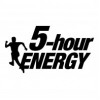Shopping Cart
SKU: CRS02Z
Erectile dysfunction (ED) is a common condition affecting men's ability to achieve and maintain an erection sufficient for sexual intercourse.
SKU: CRS53Z
Erectile dysfunction (ED), also known as impotence, is a common condition affecting men's ability to achieve and maintain an erection sufficient for sexual intercourse. It's characterized by the inability to get or keep an erection firm enough for sexual activity. This can be a temporary or ongoing issue, and it can have a significant impact on a man's self-esteem, relationships, and overall well-being.
SKU: NCLF15-14MMZ
It's important to remember that ED is not just a physical problem; it can also be linked to psychological factors such as stress, anxiety, or depression. Furthermore, ED can be a symptom of underlying health conditions, so it's crucial to seek medical advice if you're experiencing persistent difficulty with erections.
SKU: DSLF502CZ
While it may be embarrassing to discuss, it's essential to understand that ED is a treatable condition. Many effective treatment options are available, ranging from lifestyle modifications to medications and surgical procedures. With the right approach, men can regain their sexual function and enjoy a fulfilling sex life.
SKU: CRS64Z
( Available Quantity : 6 )
What would you like to do next?
Causes of Erectile Dysfunction
Erectile dysfunction (ED) can arise from a complex interplay of factors, both physical and psychological. Understanding these causes is crucial for determining the most effective treatment approach. Here are some of the most common causes of ED:
- Physical Factors:
- Cardiovascular Disease: Conditions like high blood pressure, high cholesterol, and heart disease can affect blood flow to the penis, hindering erections.
- Diabetes: Diabetes can damage blood vessels and nerves, leading to ED.
- Hormonal Imbalances: Low testosterone levels or thyroid disorders can contribute to ED.
- Medications: Certain medications, including antidepressants, antihistamines, and blood pressure medications, can have ED as a side effect.
- Prostate Problems: Prostate surgery or infections can affect the nerves and blood vessels involved in erections.
- Smoking: Nicotine damages blood vessels and restricts blood flow, contributing to ED.
- Alcohol Abuse: Excessive alcohol consumption can impair erectile function.
- Obesity: Excess weight can lead to hormonal imbalances, decreased blood flow, and other health issues that contribute to ED.
- Psychological Factors:
- Stress: Chronic stress can negatively affect sexual desire and performance.
- Anxiety: Performance anxiety can lead to difficulty achieving and maintaining an erection.
- Depression: Depression can decrease libido and impair sexual function.
- Relationship Problems: Relationship issues can create emotional stress that contributes to ED.
It's important to note that ED can also be caused by a combination of these factors. If you're experiencing ED, consulting a healthcare professional is essential to determine the underlying cause and receive appropriate treatment.
The Impact of Erectile Dysfunction
Erectile dysfunction (ED) can have a significant and multifaceted impact on a man's life, extending beyond the physical realm. It can affect emotional well-being, relationships, and overall quality of life. Understanding the full scope of its impact is crucial for addressing it effectively and seeking appropriate support.
Emotional Impact: ED can lead to feelings of inadequacy, shame, anxiety, and depression. Men may worry about their masculinity and their ability to satisfy their partners, impacting their self-esteem and confidence. The emotional burden of ED can make it difficult to engage in intimate relationships and enjoy sexual experiences.
Relationship Impact: ED can strain relationships with partners. Communication breakdowns, resentment, and feelings of rejection can arise. Partners may feel frustrated or unfulfilled, leading to conflict and tension. ED can also impact a couple's intimacy and emotional connection.
Overall Well-being: ED can negatively impact a man's overall well-being. The stress and anxiety associated with ED can contribute to sleep problems, fatigue, and difficulty concentrating. It can also lead to avoidance of social situations and activities that involve intimacy.
It's important to remember that ED is a treatable condition. Seeking help from a healthcare professional can address the underlying causes, alleviate the emotional and relationship stress, and improve overall well-being.
Treating Erectile Dysfunction
Treating erectile dysfunction (ED) involves a multifaceted approach, considering individual needs and underlying causes. Options range from lifestyle changes to medications and therapies.
Medication for Erectile Dysfunction
Medication is a common and effective treatment option for erectile dysfunction (ED). These medications work by increasing blood flow to the penis, enabling men to achieve and maintain erections. However, it's important to consult a healthcare professional to determine the most suitable medication and dosage for your individual needs.
While medications can significantly improve erectile function, they are not a cure for ED. They primarily address the symptoms and do not resolve underlying causes. It's essential to discuss any underlying health conditions or medications you are taking with your doctor to ensure the medication is safe and effective for you.
Medication for ED is typically taken as needed, usually about 30 to 60 minutes before sexual activity. The effects of the medication can last for several hours. It's important to note that these medications do not cause erections on their own; they require sexual stimulation to work effectively.
Some common side effects of ED medications include headaches, flushing, indigestion, and stuffy nose; These side effects are usually mild and temporary. If you experience any severe or persistent side effects, it's important to contact your doctor immediately.
It's crucial to discuss your medical history, current medications, and any potential drug interactions with your healthcare provider before starting any medication for ED. They can help you make an informed decision about the best treatment option for you.
Phosphodiesterase Type 5 Inhibitors (PDE5 Inhibitors)
Phosphodiesterase type 5 inhibitors (PDE5 inhibitors) are a class of medications commonly prescribed for erectile dysfunction (ED); These drugs work by relaxing the smooth muscles in the penis, increasing blood flow to the area, and facilitating erections. They are generally safe and effective for most men, but it's essential to discuss your medical history and potential interactions with your doctor before starting any PDE5 inhibitor.
PDE5 inhibitors are available in both brand-name and generic forms. Some of the most well-known medications in this class include:
- Viagra (sildenafil citrate)
- Cialis (tadalafil)
- Levitra (vardenafil)
These medications are typically taken as needed, about 30 to 60 minutes before sexual activity. Their effects can last for several hours, allowing for a longer window of opportunity for sexual intimacy. It's important to note that PDE5 inhibitors do not cause erections on their own; they require sexual stimulation to work effectively.
While PDE5 inhibitors are generally safe, they can cause some side effects, such as headaches, flushing, indigestion, and stuffy nose. These side effects are usually mild and temporary. If you experience any severe or persistent side effects, it's essential to contact your doctor immediately.
It's crucial to discuss your medical history, current medications, and any potential drug interactions with your healthcare provider before starting any PDE5 inhibitor. They can help you make an informed decision about the best treatment option for you.
Viagra (Sildenafil Citrate)
Viagra (sildenafil citrate) is a well-known and widely prescribed medication for erectile dysfunction (ED). It belongs to a class of drugs called phosphodiesterase type 5 inhibitors (PDE5 inhibitors). Viagra works by increasing blood flow to the penis, facilitating erections. It's important to note that Viagra does not cause erections on its own; it requires sexual stimulation to work effectively.
Viagra is typically taken as needed, about 30 to 60 minutes before sexual activity. Its effects can last for several hours, allowing for a longer window of opportunity for sexual intimacy. The dosage of Viagra can vary depending on individual needs and response. It's crucial to consult a healthcare professional to determine the most appropriate dosage for you.
While Viagra is generally safe and effective for most men, it can cause some side effects. Common side effects include headaches, flushing, indigestion, and stuffy nose. These side effects are usually mild and temporary. If you experience any severe or persistent side effects, it's important to contact your doctor immediately.
It's crucial to discuss your medical history, current medications, and any potential drug interactions with your healthcare provider before starting Viagra. They can help you make an informed decision about whether Viagra is the right treatment option for you and ensure safe and effective use.
How Viagra Works
Viagra (sildenafil citrate) works by enhancing the effects of nitric oxide, a naturally occurring chemical in the body that plays a key role in achieving and maintaining an erection. Here's a simplified explanation of how it works:
- Sexual Stimulation: When a man becomes sexually aroused, his brain sends signals to release nitric oxide in the penis.
- Nitric Oxide Action: Nitric oxide relaxes the smooth muscles in the blood vessels of the penis, allowing more blood to flow into the erectile tissues.
- Viagra's Role: Viagra inhibits an enzyme called phosphodiesterase type 5 (PDE5), which breaks down nitric oxide. By inhibiting PDE5, Viagra allows nitric oxide to persist longer, promoting sustained blood flow to the penis.
- Erection: The increased blood flow fills the erectile tissues, causing the penis to become erect and firm.
Essentially, Viagra acts as a catalyst, allowing the body's natural processes to function more effectively to achieve an erection. It's important to remember that Viagra does not work unless there is sexual stimulation. It simply enhances the body's ability to respond to sexual arousal.
If you're considering Viagra, it's crucial to consult a healthcare professional to determine if it's the right treatment option for you. They can assess your medical history, potential interactions with other medications, and help you make an informed decision about the safest and most effective approach.
Dosage and Administration
The dosage of Viagra (sildenafil citrate) is typically determined by a healthcare professional based on individual factors such as the severity of erectile dysfunction, response to the medication, and overall health status. It's crucial to follow the prescribed dosage and administration instructions carefully, as taking too much or too little can affect effectiveness and potentially increase the risk of side effects.
The usual starting dose of Viagra is 50 mg, taken about 30 to 60 minutes before sexual activity. The dosage may be adjusted based on individual response, ranging from 25 mg to 100 mg. It's essential to discuss your specific needs and any concerns with your doctor to determine the optimal dosage for you.
Viagra is typically taken as needed, meaning it's taken only when sexual activity is anticipated. It's not intended for daily use. However, there are some situations where a healthcare professional may recommend taking Viagra daily for certain medical conditions.
Viagra is usually taken orally with a glass of water. It can be taken with or without food, but it may take longer to work if taken with a heavy meal. The effects of Viagra typically last for several hours, allowing for a longer window of opportunity for sexual intimacy. However, the duration of effect can vary depending on individual factors.
It's important to remember that Viagra does not cause erections on its own; it requires sexual stimulation to work effectively. The medication simply enhances the body's natural response to sexual arousal.
Side Effects of Viagra
Viagra (sildenafil citrate) is generally well-tolerated, but like all medications, it can cause side effects. These side effects are usually mild and temporary, and they often subside as your body adjusts to the medication. However, it's important to be aware of potential side effects and to report any concerning symptoms to your doctor.
Common side effects of Viagra include:
- Headache: This is one of the most common side effects of Viagra, and it usually resolves on its own.
- Flushing: A feeling of warmth or redness in the face, neck, and chest is a common side effect. It's usually mild and temporary.
- Indigestion: Some people experience indigestion, heartburn, or upset stomach after taking Viagra.
- Stuffy Nose: Viagra can cause nasal congestion or a stuffy nose in some people.
- Vision Changes: Viagra may cause temporary blue-tinted vision or sensitivity to light. These vision changes are usually mild and temporary.
- Dizziness: Some people may experience dizziness after taking Viagra, especially if they are dehydrated or standing up quickly.
Rare but more serious side effects of Viagra can include:
- Prolonged Erection: A prolonged erection lasting more than four hours (priapism) is a rare but serious side effect. It requires immediate medical attention.
- Vision Loss: In rare cases, Viagra may cause a sudden loss of vision in one or both eyes. If you experience any sudden vision changes, seek medical attention immediately.
- Hearing Loss: In rare cases, Viagra may cause a sudden loss of hearing in one or both ears. If you experience any sudden hearing changes, seek medical attention immediately.
It's important to discuss any concerns about potential side effects with your healthcare provider. They can help you weigh the risks and benefits of Viagra and determine if it's the right treatment option for you.
Drug Interactions
Viagra (sildenafil citrate) can interact with other medications, potentially leading to adverse effects. It's crucial to inform your healthcare provider about all medications, supplements, and herbal remedies you are currently taking, including over-the-counter drugs, before starting Viagra. This information is essential for your doctor to assess potential drug interactions and ensure your safety.
Here are some examples of medications that can interact with Viagra:
- Nitrates: Nitrates are medications used to treat chest pain (angina). Taking Viagra with nitrates can cause a dangerous drop in blood pressure, potentially leading to life-threatening complications. Therefore, it's strictly contraindicated to take Viagra with nitrates.
- Alpha-blockers: Alpha-blockers are medications used to treat high blood pressure and prostate problems. Taking Viagra with alpha-blockers can also cause a significant drop in blood pressure, potentially leading to dizziness, lightheadedness, or fainting.
- Certain Antifungal Medications: Some antifungal medications, such as ketoconazole and itraconazole, can increase the levels of Viagra in the bloodstream, potentially increasing the risk of side effects.
- Certain HIV Medications: Some HIV medications, such as ritonavir, can also increase the levels of Viagra in the bloodstream.
- Grapefruit Juice: Grapefruit juice can interfere with the breakdown of Viagra in the body, potentially increasing its levels and leading to higher side effect risks.
It's important to note that this is not an exhaustive list of all possible drug interactions. Your healthcare provider can provide you with a more comprehensive list based on your specific medications and medical history. Always discuss any concerns about potential drug interactions with your doctor before starting any new medication.
Cialis (Tadalafil)
Cialis (tadalafil) is another widely prescribed medication for erectile dysfunction (ED). Like Viagra, Cialis belongs to the class of drugs called phosphodiesterase type 5 inhibitors (PDE5 inhibitors). Cialis works by increasing blood flow to the penis, facilitating erections. It's important to note that Cialis does not cause erections on its own; it requires sexual stimulation to work effectively.
Cialis is available in different dosages and formulations, including daily and as-needed options. The usual starting dose of Cialis for as-needed use is 10 mg, taken about 30 minutes before sexual activity. The dosage may be adjusted based on individual response, ranging from 2.5 mg to 20 mg. For daily use, the typical starting dose is 2.5 mg, taken once daily at the same time each day.
One of the key advantages of Cialis is its longer duration of action compared to Viagra. The effects of Cialis can last for up to 36 hours, allowing for a longer window of opportunity for sexual intimacy. This makes Cialis a popular choice for men who prefer more flexibility and spontaneity in their sexual lives.
Cialis can cause side effects, but they are usually mild and temporary. Common side effects include headaches, flushing, indigestion, back pain, and muscle aches. More serious side effects are rare but can include vision changes, hearing loss, and prolonged erections (priapism). It's crucial to discuss any concerns about potential side effects with your healthcare provider. They can help you weigh the risks and benefits of Cialis and determine if it's the right treatment option for you.
How Cialis Works
Cialis (tadalafil) works by enhancing the effects of nitric oxide, a naturally occurring chemical in the body that plays a key role in achieving and maintaining an erection. Here's a simplified explanation of how it works:
- Sexual Stimulation: When a man becomes sexually aroused, his brain sends signals to release nitric oxide in the penis.
- Nitric Oxide Action: Nitric oxide relaxes the smooth muscles in the blood vessels of the penis, allowing more blood to flow into the erectile tissues.
- Cialis's Role: Cialis inhibits an enzyme called phosphodiesterase type 5 (PDE5), which breaks down nitric oxide. By inhibiting PDE5, Cialis allows nitric oxide to persist longer, promoting sustained blood flow to the penis.
- Erection: The increased blood flow fills the erectile tissues, causing the penis to become erect and firm.
Essentially, Cialis acts as a catalyst, allowing the body's natural processes to function more effectively to achieve an erection. It's important to remember that Cialis does not work unless there is sexual stimulation. It simply enhances the body's ability to respond to sexual arousal.
Cialis's longer duration of action compared to Viagra is attributed to its unique chemical structure, which allows it to remain active in the body for a longer period. This longer duration of action makes Cialis a popular choice for men who prefer more flexibility and spontaneity in their sexual lives.
If you're considering Cialis, it's crucial to consult a healthcare professional to determine if it's the right treatment option for you. They can assess your medical history, potential interactions with other medications, and help you make an informed decision about the safest and most effective approach.
Dosage and Administration
The dosage of Cialis (tadalafil) is typically determined by a healthcare professional based on individual factors such as the severity of erectile dysfunction, response to the medication, and overall health status. It's crucial to follow the prescribed dosage and administration instructions carefully, as taking too much or too little can affect effectiveness and potentially increase the risk of side effects.
Cialis is available in different dosages and formulations, including daily and as-needed options. The usual starting dose of Cialis for as-needed use is 10 mg, taken about 30 minutes before sexual activity. The dosage may be adjusted based on individual response, ranging from 2.5 mg to 20 mg. For daily use, the typical starting dose is 2.5 mg, taken once daily at the same time each day.
Cialis is usually taken orally with a glass of water. It can be taken with or without food, but it may take longer to work if taken with a heavy meal. The effects of Cialis typically last for up to 36 hours, allowing for a longer window of opportunity for sexual intimacy. However, the duration of effect can vary depending on individual factors.
It's important to remember that Cialis does not cause erections on its own; it requires sexual stimulation to work effectively. The medication simply enhances the body's natural response to sexual arousal.
If you're taking Cialis for daily use, it's important to take it at the same time each day to maintain consistent levels of the medication in your bloodstream. This helps ensure optimal effectiveness and reduces the risk of side effects. It's also important to avoid grapefruit juice while taking Cialis, as grapefruit juice can interact with the medication and potentially increase its levels in the body.
Side Effects of Cialis
Cialis (tadalafil) is generally well-tolerated, but like all medications, it can cause side effects. These side effects are usually mild and temporary, and they often subside as your body adjusts to the medication. However, it's important to be aware of potential side effects and to report any concerning symptoms to your doctor.
Common side effects of Cialis include:
- Headache: This is one of the most common side effects of Cialis, and it usually resolves on its own.
- Flushing: A feeling of warmth or redness in the face, neck, and chest is a common side effect. It's usually mild and temporary.
- Indigestion: Some people experience indigestion, heartburn, or upset stomach after taking Cialis.
- Back Pain: Cialis can cause back pain in some people, especially when taken for the first time.
- Muscle Aches: Muscle aches are another common side effect of Cialis.
- Vision Changes: Cialis may cause temporary blue-tinted vision or sensitivity to light. These vision changes are usually mild and temporary.
- Nasal Congestion: Cialis can cause nasal congestion or a stuffy nose in some people.
Rare but more serious side effects of Cialis can include:
- Prolonged Erection: A prolonged erection lasting more than four hours (priapism) is a rare but serious side effect. It requires immediate medical attention.
- Vision Loss: In rare cases, Cialis may cause a sudden loss of vision in one or both eyes. If you experience any sudden vision changes, seek medical attention immediately.
- Hearing Loss: In rare cases, Cialis may cause a sudden loss of hearing in one or both ears. If you experience any sudden hearing changes, seek medical attention immediately.
It's important to discuss any concerns about potential side effects with your healthcare provider. They can help you weigh the risks and benefits of Cialis and determine if it's the right treatment option for you.
Drug Interactions
Cialis (tadalafil) can interact with other medications, potentially leading to adverse effects. It's crucial to inform your healthcare provider about all medications, supplements, and herbal remedies you are currently taking, including over-the-counter drugs, before starting Cialis. This information is essential for your doctor to assess potential drug interactions and ensure your safety.
Here are some examples of medications that can interact with Cialis:
- Nitrates: Nitrates are medications used to treat chest pain (angina). Taking Cialis with nitrates can cause a dangerous drop in blood pressure, potentially leading to life-threatening complications. Therefore, it's strictly contraindicated to take Cialis with nitrates.
- Alpha-blockers: Alpha-blockers are medications used to treat high blood pressure and prostate problems. Taking Cialis with alpha-blockers can also cause a significant drop in blood pressure, potentially leading to dizziness, lightheadedness, or fainting.
- Certain Antifungal Medications: Some antifungal medications, such as ketoconazole and itraconazole, can increase the levels of Cialis in the bloodstream, potentially increasing the risk of side effects.
- Certain HIV Medications: Some HIV medications, such as ritonavir, can also increase the levels of Cialis in the bloodstream.
- Grapefruit Juice: Grapefruit juice can interfere with the breakdown of Cialis in the body, potentially increasing its levels and leading to higher side effect risks.
It's important to note that this is not an exhaustive list of all possible drug interactions. Your healthcare provider can provide you with a more comprehensive list based on your specific medications and medical history. Always discuss any concerns about potential drug interactions with your doctor before starting any new medication.
Levitra (Vardenafil)
Levitra (vardenafil) is another medication prescribed for erectile dysfunction (ED). Like Viagra and Cialis, Levitra belongs to the class of drugs called phosphodiesterase type 5 inhibitors (PDE5 inhibitors). Levitra works by increasing blood flow to the penis, facilitating erections. It's important to note that Levitra does not cause erections on its own; it requires sexual stimulation to work effectively.
Levitra is available in different dosages, and the usual starting dose is 10 mg, taken about 30 to 60 minutes before sexual activity. The dosage may be adjusted based on individual response, ranging from 2.5 mg to 20 mg. Levitra is typically taken as needed, meaning it's taken only when sexual activity is anticipated. It's not intended for daily use, but in some cases, a healthcare professional may recommend taking it daily for certain medical conditions.
Levitra is usually taken orally with a glass of water. It can be taken with or without food, but it may take longer to work if taken with a heavy meal. The effects of Levitra typically last for about 4 to 5 hours, allowing for a reasonable window of opportunity for sexual intimacy. However, the duration of effect can vary depending on individual factors.
Like other PDE5 inhibitors, Levitra can cause side effects, but they are usually mild and temporary. Common side effects include headaches, flushing, indigestion, back pain, muscle aches, and stuffy nose. More serious side effects are rare but can include vision changes, hearing loss, and prolonged erections (priapism). It's crucial to discuss any concerns about potential side effects with your healthcare provider. They can help you weigh the risks and benefits of Levitra and determine if it's the right treatment option for you.
How Levitra Works
Levitra (vardenafil) works by enhancing the effects of nitric oxide, a naturally occurring chemical in the body that plays a key role in achieving and maintaining an erection. Here's a simplified explanation of how it works:
- Sexual Stimulation: When a man becomes sexually aroused, his brain sends signals to release nitric oxide in the penis.
- Nitric Oxide Action: Nitric oxide relaxes the smooth muscles in the blood vessels of the penis, allowing more blood to flow into the erectile tissues.
- Levitra's Role: Levitra inhibits an enzyme called phosphodiesterase type 5 (PDE5), which breaks down nitric oxide. By inhibiting PDE5, Levitra allows nitric oxide to persist longer, promoting sustained blood flow to the penis.
- Erection: The increased blood flow fills the erectile tissues, causing the penis to become erect and firm.
Essentially, Levitra acts as a catalyst, allowing the body's natural processes to function more effectively to achieve an erection. It's important to remember that Levitra does not work unless there is sexual stimulation. It simply enhances the body's ability to respond to sexual arousal.
Levitra's mechanism of action is similar to Viagra and Cialis, but it has a slightly different chemical structure, leading to some differences in its duration of action and side effect profile. Levitra's effects typically last for about 4 to 5 hours, which is comparable to Viagra but shorter than Cialis.
If you're considering Levitra, it's crucial to consult a healthcare professional to determine if it's the right treatment option for you. They can assess your medical history, potential interactions with other medications, and help you make an informed decision about the safest and most effective approach.
Dosage and Administration
The dosage of Levitra (vardenafil) is typically determined by a healthcare professional based on individual factors such as the severity of erectile dysfunction, response to the medication, and overall health status. It's crucial to follow the prescribed dosage and administration instructions carefully, as taking too much or too little can affect effectiveness and potentially increase the risk of side effects.
The usual starting dose of Levitra is 10 mg, taken about 30 to 60 minutes before sexual activity. The dosage may be adjusted based on individual response, ranging from 2.5 mg to 20 mg. It's essential to discuss your specific needs and any concerns with your doctor to determine the optimal dosage for you.
Levitra is typically taken as needed, meaning it's taken only when sexual activity is anticipated. It's not intended for daily use. However, there are some situations where a healthcare professional may recommend taking Levitra daily for certain medical conditions.
Levitra is usually taken orally with a glass of water. It can be taken with or without food, but it may take longer to work if taken with a heavy meal. The effects of Levitra typically last for about 4 to 5 hours, allowing for a reasonable window of opportunity for sexual intimacy. However, the duration of effect can vary depending on individual factors.
It's important to remember that Levitra does not cause erections on its own; it requires sexual stimulation to work effectively. The medication simply enhances the body's natural response to sexual arousal.
Side Effects of Levitra
Levitra (vardenafil) is generally well-tolerated, but like all medications, it can cause side effects. These side effects are usually mild and temporary, and they often subside as your body adjusts to the medication. However, it's important to be aware of potential side effects and to report any concerning symptoms to your doctor.
Common side effects of Levitra include:
- Headache: This is one of the most common side effects of Levitra, and it usually resolves on its own.
- Flushing: A feeling of warmth or redness in the face, neck, and chest is a common side effect. It's usually mild and temporary.
- Indigestion: Some people experience indigestion, heartburn, or upset stomach after taking Levitra.
- Back Pain: Levitra can cause back pain in some people, especially when taken for the first time.
- Muscle Aches: Muscle aches are another common side effect of Levitra.
- Vision Changes: Levitra may cause temporary blue-tinted vision or sensitivity to light. These vision changes are usually mild and temporary.
- Nasal Congestion: Levitra can cause nasal congestion or a stuffy nose in some people.
Rare but more serious side effects of Levitra can include:
- Prolonged Erection: A prolonged erection lasting more than four hours (priapism) is a rare but serious side effect. It requires immediate medical attention.
- Vision Loss: In rare cases, Levitra may cause a sudden loss of vision in one or both eyes. If you experience any sudden vision changes, seek medical attention immediately.
- Hearing Loss: In rare cases, Levitra may cause a sudden loss of hearing in one or both ears. If you experience any sudden hearing changes, seek medical attention immediately.
It's important to discuss any concerns about potential side effects with your healthcare provider. They can help you weigh the risks and benefits of Levitra and determine if it's the right treatment option for you.
Drug Interactions
Levitra (vardenafil) can interact with other medications, potentially leading to adverse effects. It's crucial to inform your healthcare provider about all medications, supplements, and herbal remedies you are currently taking, including over-the-counter drugs, before starting Levitra. This information is essential for your doctor to assess potential drug interactions and ensure your safety.
Here are some examples of medications that can interact with Levitra:
- Nitrates: Nitrates are medications used to treat chest pain (angina). Taking Levitra with nitrates can cause a dangerous drop in blood pressure, potentially leading to life-threatening complications. Therefore, it's strictly contraindicated to take Levitra with nitrates.
- Alpha-blockers: Alpha-blockers are medications used to treat high blood pressure and prostate problems. Taking Levitra with alpha-blockers can also cause a significant drop in blood pressure, potentially leading to dizziness, lightheadedness, or fainting.
- Certain Antifungal Medications: Some antifungal medications, such as ketoconazole and itraconazole, can increase the levels of Levitra in the bloodstream, potentially increasing the risk of side effects.
- Certain HIV Medications: Some HIV medications, such as ritonavir, can also increase the levels of Levitra in the bloodstream.
- Grapefruit Juice: Grapefruit juice can interfere with the breakdown of Levitra in the body, potentially increasing its levels and leading to higher side effect risks.
It's important to note that this is not an exhaustive list of all possible drug interactions. Your healthcare provider can provide you with a more comprehensive list based on your specific medications and medical history. Always discuss any concerns about potential drug interactions with your doctor before starting any new medication.
Other Treatment Options
While medication is often the first-line treatment for erectile dysfunction (ED), various other options can be effective, depending on the individual's needs and preferences. These alternative approaches address the underlying causes of ED, improve overall health, or provide mechanical solutions for achieving erections. It's important to discuss these options with your healthcare provider to determine the most suitable course of action for you.
- Lifestyle Modifications:
- Weight Loss: Obesity can contribute to ED by affecting blood flow and hormones. Losing weight can improve erectile function.
- Exercise: Regular physical activity improves blood circulation and cardiovascular health, which can benefit erectile function.
- Smoking Cessation: Smoking damages blood vessels and restricts blood flow, contributing to ED. Quitting smoking can significantly improve erectile function.
- Reduced Alcohol Consumption: Excessive alcohol consumption can impair erectile function. Moderating alcohol intake can improve erectile function.
- Stress Management: Stress can negatively affect sexual desire and performance. Stress management techniques, such as meditation or yoga, can help improve erectile function.
- Counseling and Therapy:
- Psychotherapy: ED can be linked to psychological factors such as anxiety, depression, or relationship problems. Therapy can help address these underlying issues and improve erectile function.
- Sex Therapy: Sex therapy can help couples address communication problems, improve intimacy, and reduce performance anxiety, which can contribute to ED.
- Penile Implants:
- Penile Implants: This surgical procedure involves inserting inflatable rods into the penis, allowing for erections to be achieved on demand.
- Vacuum Erection Devices:
- Vacuum Erection Devices: These devices create a vacuum around the penis, drawing blood into the erectile tissues and producing an erection. They are a non-invasive option for men who prefer not to take medication or undergo surgery.
It's important to discuss your individual situation with your healthcare provider to determine the most appropriate treatment approach for you. They can help you weigh the risks and benefits of each option and guide you toward a solution that addresses your specific needs and preferences.
Lifestyle Modifications
Lifestyle modifications are often the first line of defense against erectile dysfunction (ED), particularly when the condition is caused or exacerbated by unhealthy habits. By adopting a healthier lifestyle, you can improve blood flow, enhance cardiovascular health, and address underlying factors that contribute to ED. These changes can not only improve your erectile function but also enhance your overall health and well-being.
- Weight Loss: Obesity is a significant risk factor for ED, as it can affect blood flow, hormone levels, and overall cardiovascular health. Losing excess weight can improve blood flow to the penis and enhance erectile function.
- Exercise: Regular physical activity is crucial for maintaining cardiovascular health and improving blood flow. Aim for at least 30 minutes of moderate-intensity exercise most days of the week. This can include brisk walking, jogging, swimming, biking, or dancing. Exercise can also help reduce stress and improve overall well-being, which can positively impact sexual function.
- Smoking Cessation: Smoking damages blood vessels and restricts blood flow, which can contribute to ED. Quitting smoking is essential for improving erectile function and overall health. Your healthcare provider can help you develop a smoking cessation plan that suits your needs.
- Reduced Alcohol Consumption: Excessive alcohol consumption can impair erectile function. Moderating alcohol intake, following the recommended guidelines for safe drinking, can improve erectile function.
- Stress Management: Stress can negatively affect sexual desire and performance. Stress management techniques, such as meditation, yoga, deep breathing exercises, or spending time in nature, can help reduce stress levels and improve erectile function.
- Healthy Diet: A balanced diet rich in fruits, vegetables, whole grains, and lean protein can help improve overall health and reduce the risk of developing ED. Focus on consuming foods that are low in saturated and trans fats, cholesterol, and sodium.
It's important to note that lifestyle modifications may not address all cases of ED, especially when there are underlying medical conditions. Consulting with your healthcare provider is essential to identify the cause of your ED and develop a personalized treatment plan that addresses your specific needs.
Counseling and Therapy
Counseling and therapy can play a vital role in addressing erectile dysfunction (ED), particularly when psychological factors are involved. ED is not always solely a physical issue; it can be influenced by stress, anxiety, depression, relationship problems, or past experiences. Talking to a therapist can help you understand and manage these emotional and psychological factors that may be contributing to your ED.
Psychotherapy can provide a safe and supportive space to explore the underlying causes of your ED. A therapist can help you identify and address any negative thoughts or beliefs you may have about your sexuality, masculinity, or ability to perform sexually. They can also teach you coping mechanisms for managing stress, anxiety, and depression, which can significantly impact sexual function.
Sex therapy is a specialized form of therapy that focuses on sexual concerns and difficulties. A sex therapist can help you and your partner improve communication, understand each other's needs and desires, and develop healthy coping strategies for dealing with sexual challenges. They can also provide education about sexuality, intimacy, and relationship dynamics.
Counseling and therapy can be particularly helpful for men who experience performance anxiety, which can make it difficult to achieve and maintain an erection. A therapist can help you identify and address the root causes of your performance anxiety and develop strategies for managing it during sexual activity. They can also provide you with tools and techniques for improving your overall sexual confidence and reducing stress.
If you're considering counseling or therapy for ED, it's important to find a qualified therapist who specializes in sexual health. Your healthcare provider can recommend a therapist in your area.
Penile Implants
Penile implants are a surgical treatment option for erectile dysfunction (ED) that is typically considered when other methods, such as medication or lifestyle changes, have not been successful. They provide a permanent solution for achieving and maintaining erections, offering a viable option for men who desire a reliable and consistent ability to engage in sexual activity.
Penile implants are surgically placed inside the penis, typically under general anesthesia. There are two main types of penile implants:
- Inflatable Implants: These implants consist of two inflatable rods placed inside the penis, along with a pump and a reservoir. To achieve an erection, the man pumps the fluid from the reservoir into the rods, causing the penis to become erect. To deflate the penis, he simply releases the fluid back into the reservoir.
- Semi-rigid Implants: These implants consist of two semi-rigid rods that are permanently implanted inside the penis. They provide a semi-rigid erection that allows for sexual intercourse. These implants are not inflatable and do not require a pump or reservoir.
Penile implants are a safe and effective treatment option for ED, but they are a major surgical procedure with potential risks and complications. It's crucial to discuss the procedure in detail with your healthcare provider, including the risks, benefits, and potential complications. They can help you determine if penile implants are the right treatment option for you, based on your individual health status and preferences.
Vacuum Erection Devices
Vacuum erection devices (VEDs) provide a non-invasive and drug-free option for achieving erections. They are a mechanical solution for ED that works by creating a vacuum around the penis, drawing blood into the erectile tissues and producing an erection. VEDs are a safe and effective alternative for men who prefer not to take medication or undergo surgery.
VEDs typically consist of a cylinder that fits over the penis, a pump to create a vacuum, and a constricting band to maintain the erection. To use a VED, the man places the cylinder over his penis and pumps out the air, creating a vacuum. This draws blood into the erectile tissues, causing the penis to become erect. Once an erection is achieved, a constricting band is placed at the base of the penis to maintain the erection for sexual intercourse.
VEDs are available over-the-counter and can be purchased online or at medical supply stores. They are relatively easy to use and can be effective in achieving erections. However, it's important to use them correctly to avoid potential complications, such as bruising or pain.
While VEDs can be an effective solution for ED, they are not a permanent solution and require regular use to achieve erections. They may also not be suitable for all men, particularly those with certain medical conditions or who have undergone specific surgeries. It's important to discuss the use of VEDs with your healthcare provider to determine if they are a suitable option for you.
Your healthcare provider can also provide guidance on how to use a VED correctly and safely to minimize the risk of complications. They can also help you choose the right VED for your needs and answer any questions you may have about its use.
Choosing the Right Treatment
Choosing the right treatment for erectile dysfunction (ED) requires a collaborative approach with your healthcare provider, considering your individual needs and preferences.
Consulting a Healthcare Professional
Consulting a healthcare professional is the first and most crucial step in addressing erectile dysfunction (ED). A doctor can provide a thorough evaluation, determine the underlying cause of your ED, and recommend the most appropriate treatment plan. It's essential to be open and honest with your doctor about your symptoms, medical history, and any medications or supplements you are taking. This information is crucial for your doctor to make informed decisions about your treatment.
During the consultation, your doctor will likely ask you about your sexual history, any previous experiences with ED, and your lifestyle habits, such as smoking, alcohol consumption, and exercise. They will also perform a physical examination and may order blood tests or other diagnostic tests to rule out any underlying medical conditions that could be contributing to your ED.
Based on the evaluation, your doctor will discuss your treatment options with you, considering factors such as your preferences, health status, and potential risks and benefits of different treatment approaches. They may recommend medications, lifestyle modifications, counseling, or other therapies. It's important to ask questions and express your concerns to ensure you understand your treatment plan and feel comfortable with it.
Your doctor can also provide guidance on safe and effective use of medications, address any side effects you may experience, and monitor your progress throughout your treatment. Regular follow-up appointments are essential to ensure that your treatment is working and to address any changes in your condition.
Factors to Consider
Choosing the right treatment for erectile dysfunction (ED) involves considering several factors beyond just the availability of options. A personalized approach tailored to your specific needs and circumstances is crucial for achieving optimal results and improving your overall well-being. Here are some key factors to discuss with your healthcare provider:
- Severity of Erectile Dysfunction: The frequency and severity of your ED will influence the treatment approach. If it's a rare occurrence, lifestyle modifications might be sufficient. However, if it's persistent, medications or other therapies may be necessary.
- Medical History and Medications: Your doctor needs to know about any existing health conditions or medications you are taking, as these can affect treatment options and potential drug interactions. Some medications can cause or worsen ED, while others can interact with ED medications.
- Lifestyle Factors: Your lifestyle habits, such as smoking, alcohol consumption, exercise, and diet, can significantly impact ED. Addressing these factors can improve overall health and potentially enhance erectile function.
- Personal Preferences: Your individual preferences and comfort level with different treatment options are important considerations. Some men may prefer medications, while others might prefer non-invasive approaches or lifestyle changes.
- Cost: The cost of treatment can vary depending on the options chosen. It's essential to discuss cost considerations with your doctor to ensure that your treatment plan fits within your budget.
By considering these factors and discussing them openly with your healthcare provider, you can work together to develop a personalized treatment plan that addresses your specific needs, preferences, and goals.
Severity of Erectile Dysfunction
The severity of erectile dysfunction (ED) is a crucial factor in determining the most appropriate treatment approach. It's not just about whether you experience ED occasionally or frequently, but also about the extent to which it affects your ability to have sexual intercourse and how it impacts your overall quality of life. Understanding the severity of your ED will help guide your doctor in recommending the most effective treatment.
Here's a breakdown of ED severity levels:
- Mild ED: You experience ED occasionally, and it does not significantly interfere with your ability to have sexual intercourse. Lifestyle modifications, such as weight loss, exercise, and stress management, may be sufficient to address mild ED;
- Moderate ED: You experience ED more frequently, and it may occasionally prevent you from having sexual intercourse. Medications, such as PDE5 inhibitors, may be necessary to improve erectile function.
- Severe ED: You experience ED consistently, and it significantly interferes with your ability to have sexual intercourse. More aggressive treatment options, such as penile implants or vacuum erection devices, may be considered.
It's important to discuss the severity of your ED with your healthcare provider. They can assess your specific situation, consider the underlying causes of your ED, and recommend the most appropriate treatment approach to improve your sexual function and overall well-being.
Don't hesitate to seek help if you're experiencing ED. With proper evaluation and treatment, you can regain your sexual health and enjoy a fulfilling sex life.
Medical History and Medications
Your medical history and current medications are crucial factors to consider when choosing the right treatment for erectile dysfunction (ED). Providing your healthcare provider with a comprehensive overview of your health status allows them to make informed decisions about your treatment, ensuring safety and effectiveness.
Here's why your medical history is important:
- Underlying Medical Conditions: Certain medical conditions, such as diabetes, heart disease, high blood pressure, and prostate problems, can contribute to or worsen ED. Your doctor needs to know about any existing health conditions to determine the most appropriate treatment approach.
- Previous Treatments: If you've tried treatments for ED in the past, your doctor needs to know what those treatments were, how effective they were, and if you experienced any side effects. This information helps them avoid treatments that may not be suitable or effective for you.
- Surgeries: Certain surgeries, such as prostate surgery, can damage the nerves and blood vessels involved in erections, contributing to ED. Your doctor needs to be aware of any past surgeries you've had that could be relevant to your ED.
Here's why your current medications are important:
- Drug Interactions: Some medications can interact with ED medications, potentially causing adverse effects. Your doctor needs to know about all medications, including over-the-counter drugs, supplements, and herbal remedies, to assess potential drug interactions and ensure your safety;
- Side Effects: Some medications can cause ED as a side effect. Your doctor needs to know about any medications you are taking that could be contributing to your ED.
By providing your healthcare provider with a detailed medical history and a list of all medications you are taking, you are helping them to make the best possible decisions about your treatment and ensure a safe and effective outcome.
Lifestyle Factors
Lifestyle factors play a significant role in erectile dysfunction (ED), often contributing to its development or worsening its symptoms. Addressing these factors can not only improve erectile function but also enhance overall health and well-being. It's essential to discuss your lifestyle habits with your healthcare provider to determine if they are contributing to your ED and to develop strategies for making positive changes.
Here are some lifestyle factors that can affect ED:
- Smoking: Smoking damages blood vessels and restricts blood flow, which can impair erectile function. Quitting smoking is essential for improving erectile function and overall health. Your doctor can provide support and resources to help you quit.
- Alcohol Consumption: Excessive alcohol consumption can impair erectile function. Moderating your alcohol intake, following recommended guidelines for safe drinking, can improve erectile function and overall health.
- Exercise: Regular physical activity is crucial for maintaining cardiovascular health and improving blood flow. Aim for at least 30 minutes of moderate-intensity exercise most days of the week. This can include brisk walking, jogging, swimming, biking, or dancing. Exercise can also help reduce stress and improve overall well-being, which can positively impact sexual function.
- Weight: Obesity can contribute to ED by affecting blood flow, hormone levels, and overall cardiovascular health. Losing excess weight can improve blood flow to the penis and enhance erectile function.
- Stress: Stress can negatively affect sexual desire and performance. Stress management techniques, such as meditation, yoga, deep breathing exercises, or spending time in nature, can help reduce stress levels and improve erectile function.
- Diet: A balanced diet rich in fruits, vegetables, whole grains, and lean protein can help improve overall health and reduce the risk of developing ED. Focus on consuming foods that are low in saturated and trans fats, cholesterol, and sodium.
By addressing these lifestyle factors, you can significantly improve your chances of overcoming ED and enhancing your sexual health.
Navigating Treatment Options
With a variety of treatment options available, navigating the landscape of erectile dysfunction (ED) therapy can feel overwhelming. Understanding the differences between prescription medications, over-the-counter options, and online pharmacies is crucial for making informed choices and ensuring safe and effective treatment. Here's a breakdown of these options to help you navigate the process:
- Prescription Medications:
- PDE5 Inhibitors: These medications, such as Viagra, Cialis, and Levitra, are the most common treatment for ED. They require a prescription from a healthcare professional.
- Other Medications: In some cases, your doctor may recommend other medications, such as testosterone therapy, for underlying hormonal imbalances that contribute to ED.
- Over-the-Counter Options:
- Herbal Supplements: Several herbal supplements claim to improve erectile function, but their effectiveness is not scientifically proven. It's important to discuss these supplements with your doctor before using them, as they can interact with other medications and potentially cause side effects.
- Vacuum Erection Devices: These mechanical devices are available over-the-counter and can be purchased online or at medical supply stores. They are a non-invasive option for men who prefer not to take medication or undergo surgery.
- Online Pharmacies:
- Prescription Medications: Some online pharmacies offer prescription medications, but it's crucial to ensure that the pharmacy is licensed and reputable. Buying medications online from unverified sources can be risky, as the medications may not be genuine or safe.
- Over-the-Counter Options: Online pharmacies also sell over-the-counter options, such as herbal supplements and vacuum erection devices. However, it's important to exercise caution and choose reputable sources to ensure the quality and safety of the products.
It's essential to discuss your treatment options with your healthcare provider to determine the best approach for your individual needs and circumstances. They can help you weigh the risks and benefits of each option and guide you toward a safe and effective solution for your ED.
Prescription Medications
Prescription medications are often the first-line treatment for erectile dysfunction (ED), particularly when lifestyle modifications alone haven't yielded satisfactory results. These medications work by increasing blood flow to the penis, facilitating erections. However, it's crucial to remember that these medications are not a cure for ED; they primarily address the symptoms and do not resolve underlying causes. It's essential to discuss any underlying health conditions or medications you are taking with your doctor to ensure the medication is safe and effective for you.
The most common type of prescription medication for ED is called phosphodiesterase type 5 inhibitors (PDE5 inhibitors). These medications include Viagra (sildenafil citrate), Cialis (tadalafil), and Levitra (vardenafil). They are typically taken as needed, usually about 30 to 60 minutes before sexual activity. The effects of the medication can last for several hours, allowing for a longer window of opportunity for sexual intimacy. It's important to note that these medications do not cause erections on their own; they require sexual stimulation to work effectively.
While PDE5 inhibitors are generally safe and effective for most men, they can cause some side effects, such as headaches, flushing, indigestion, and stuffy nose. These side effects are usually mild and temporary. If you experience any severe or persistent side effects, it's important to contact your doctor immediately.
It's crucial to discuss your medical history, current medications, and any potential drug interactions with your healthcare provider before starting any medication for ED. They can help you make an informed decision about the best treatment option for you.
Over-the-Counter Options
While prescription medications are often the first-line treatment for erectile dysfunction (ED), some over-the-counter options are available. However, it's crucial to approach these options with caution and to discuss them with your healthcare provider before using them. The effectiveness of many over-the-counter products for ED is not scientifically proven, and they can potentially interact with other medications or cause side effects.
Here are some common over-the-counter options for ED:
- Herbal Supplements: Various herbal supplements claim to improve erectile function, but their effectiveness is not scientifically proven. Popular examples include yohimbe, ginseng, and horny goat weed. It's crucial to discuss these supplements with your doctor before using them, as they can interact with other medications and potentially cause side effects. Some herbal supplements can also interact with certain medical conditions, so it's essential to be aware of potential risks.
- Vacuum Erection Devices: These devices are available over-the-counter and can be purchased online or at medical supply stores. They create a vacuum around the penis, drawing blood into the erectile tissues and producing an erection. VEDs are a non-invasive option for men who prefer not to take medication or undergo surgery. However, it's important to use them correctly to avoid potential complications, such as bruising or pain. Your doctor can provide guidance on safe and effective use.
While these over-the-counter options may seem appealing, it's essential to remember that they are not a substitute for medical advice or treatment. Consulting with your doctor is crucial to determine the underlying cause of your ED and to develop a personalized treatment plan that addresses your specific needs and preferences. They can help you weigh the risks and benefits of different options and ensure that your chosen approach is safe and effective.
Online Pharmacies
The convenience of online pharmacies can be tempting, especially when seeking erectile dysfunction (ED) medications. However, it's crucial to exercise extreme caution when buying medication online. The unregulated nature of the online marketplace can lead to risks, including counterfeit drugs, unsafe practices, and potential health consequences.
Here are some key considerations when considering online pharmacies for ED medications:
- Prescription Requirements: Legitimate online pharmacies require a valid prescription from a licensed healthcare provider. If a website offers ED medications without a prescription, it's likely not a legitimate pharmacy. Always consult with your doctor and obtain a valid prescription before buying medications online.
- Pharmacy Licensing and Accreditation: Reputable online pharmacies are licensed and accredited by relevant regulatory bodies. Check the pharmacy's website for information about their licensing and accreditation. You can also verify this information with the relevant regulatory bodies in your country or region.
- Security Measures: Legitimate online pharmacies prioritize security and privacy. Look for a website with a secure connection, indicated by "https" in the website address and a padlock icon in the browser's address bar. The website should also have a clear privacy policy outlining how they handle your personal and medical information.
- Customer Reviews: Reading customer reviews can provide insights into the reliability and customer service of a particular online pharmacy. However, be aware that some reviews may be fake or biased. Look for reviews from multiple sources and consider the overall feedback.
- Contact Information: Reputable online pharmacies have clear and accessible contact information, including a physical address, phone number, and email address. If you can't find this information, it's a red flag.
- Price Comparison: While online pharmacies can sometimes offer lower prices, it's crucial to compare prices with local pharmacies and be wary of extremely low prices, which may indicate counterfeit drugs. Remember that the cheapest option isn't always the best.
It's always advisable to consult with your doctor before buying medications online, even from legitimate pharmacies. They can help you determine the most appropriate treatment option for your ED and ensure you are getting safe and effective medications.
Managing Erectile Dysfunction
Managing erectile dysfunction (ED) involves a holistic approach, encompassing lifestyle choices, ongoing care, and seeking support when needed.
Lifestyle Choices
Lifestyle choices can significantly impact erectile dysfunction (ED) and overall sexual health. Adopting a healthy lifestyle can improve blood flow, enhance cardiovascular health, and address underlying factors that contribute to ED. These changes can not only improve your erectile function but also enhance your overall health and well-being.
- Diet and Exercise:
- Healthy Diet: A balanced diet rich in fruits, vegetables, whole grains, and lean protein can help improve overall health and reduce the risk of developing ED. Focus on consuming foods that are low in saturated and trans fats, cholesterol, and sodium.
- Regular Exercise: Regular physical activity is crucial for maintaining cardiovascular health and improving blood flow. Aim for at least 30 minutes of moderate-intensity exercise most days of the week. This can include brisk walking, jogging, swimming, biking, or dancing. Exercise can also help reduce stress and improve overall well-being, which can positively impact sexual function.
- Stress Management:
- Stress Reduction: Stress can negatively affect sexual desire and performance. Stress management techniques, such as meditation, yoga, deep breathing exercises, or spending time in nature, can help reduce stress levels and improve erectile function.
- Smoking Cessation:
- Quit Smoking: Smoking damages blood vessels and restricts blood flow, which can contribute to ED. Quitting smoking is essential for improving erectile function and overall health. Your healthcare provider can help you develop a smoking cessation plan that suits your needs.
- Alcohol Consumption:
- Moderate Alcohol Intake: Excessive alcohol consumption can impair erectile function. Moderating alcohol intake, following recommended guidelines for safe drinking, can improve erectile function.
It's important to remember that lifestyle changes may not address all cases of ED, especially when there are underlying medical conditions. Consulting with your healthcare provider is essential to identify the cause of your ED and develop a personalized treatment plan that addresses your specific needs.
Diet and Exercise
A healthy diet and regular exercise are essential for overall well-being, and they can play a significant role in managing erectile dysfunction (ED). By adopting a heart-healthy lifestyle, you can improve blood flow, reduce stress, and enhance your overall health, which can positively impact your sexual function.
- Healthy Diet: Focus on consuming a balanced diet rich in fruits, vegetables, whole grains, and lean protein. Limit your intake of saturated and trans fats, cholesterol, and sodium. These dietary changes can help lower your risk of heart disease, high blood pressure, and diabetes, conditions that can contribute to ED.
- Regular Exercise: Regular physical activity is crucial for maintaining cardiovascular health and improving blood flow. Aim for at least 30 minutes of moderate-intensity exercise most days of the week. This can include brisk walking, jogging, swimming, biking, or dancing. Exercise can also help reduce stress, improve sleep quality, and boost your mood, all of which can positively impact sexual function.
Here are some specific dietary recommendations to consider:
- Increase your intake of fruits and vegetables: Fruits and vegetables are rich in antioxidants, vitamins, and minerals that can benefit cardiovascular health.
- Choose whole grains over refined grains: Whole grains are a good source of fiber, which can help regulate blood sugar levels and lower cholesterol.
- Choose lean protein sources: Lean protein sources, such as fish, poultry, beans, and lentils, can help maintain a healthy weight and support overall health.
- Limit your intake of saturated and trans fats: Saturated and trans fats can increase your risk of heart disease, which can contribute to ED.
- Limit your intake of processed foods, sugary drinks, and excessive salt: These foods can increase your risk of obesity, high blood pressure, and diabetes, all of which can affect erectile function.
It's important to note that dietary and exercise changes alone may not address all cases of ED, especially when there are underlying medical conditions. Consulting with your healthcare provider is essential to identify the cause of your ED and develop a personalized treatment plan that addresses your specific needs.
Stress Management
Stress can have a significant impact on erectile dysfunction (ED), often contributing to its development or worsening its symptoms. Chronic stress can negatively affect sexual desire, arousal, and performance, leading to difficulty achieving and maintaining an erection. It's essential to prioritize stress management techniques to improve your overall health and well-being, which can positively impact your sexual function.
Here are some effective stress management strategies:
- Mindfulness and Meditation: Mindfulness practices, such as meditation, can help you become more aware of your thoughts, feelings, and bodily sensations. This can help you identify and manage stress triggers, reducing the overall impact of stress on your body and mind.
- Yoga and Deep Breathing Exercises: Yoga and deep breathing exercises can help calm the nervous system, reduce muscle tension, and promote relaxation. They can also help improve body awareness and flexibility, which can enhance sexual function.
- Regular Exercise: Regular physical activity is an excellent stress reliever. It releases endorphins, which have mood-boosting effects, and helps reduce anxiety and tension. Aim for at least 30 minutes of moderate-intensity exercise most days of the week.
- Spending Time in Nature: Spending time in nature has been shown to have calming and restorative effects. Go for walks in parks or forests, sit by a lake or stream, or simply enjoy the fresh air and sunshine.
- Adequate Sleep: Getting enough sleep is essential for managing stress and improving overall health. Aim for 7-8 hours of quality sleep each night.
- Healthy Diet: Consuming a balanced diet rich in fruits, vegetables, and whole grains can help regulate mood and reduce stress levels. Limit your intake of processed foods, sugary drinks, and caffeine, which can contribute to anxiety and sleep disturbances.
- Social Support: Connecting with loved ones and building strong social relationships can provide emotional support and reduce stress levels. Spend time with friends and family, join social groups, or seek support from a therapist or counselor.
It's important to find stress management techniques that work best for you. Experiment with different strategies and find what helps you relax and manage your stress effectively. If you're struggling to manage stress on your own, don't hesitate to seek professional help from a therapist or counselor.
This product has no stock!! Please enter your information to form bellow. We will send you notification when it is back!


















